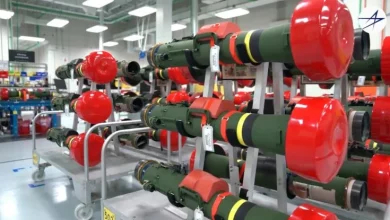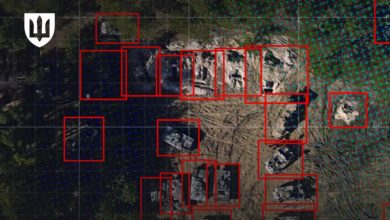Analysis: Dynamics of Türkiye-Syria normalization

Türkiye can help convince aggrieved Syrians who are angry with the Assad regime and help establish a democratic Syria after a fair political process
In response to a question from journalists, Turkish President Recep Tayyip Erdogan recently gave positive signals about “normalization” with Bashar al-Assad. This statement, which coincides with a series of talks at the technical level mediated by Iraq, is important in terms of timing. If two neighboring countries find a solution to their problems by talking, it may make it easier to be ready for regional and global crises. At this point, it is useful to focus on the reasons underlying Türkiye-Syria normalization and the expectations of the parties.
Syrians in Türkiye and normalization
Over the last 13 years, during which hundreds of thousands of people have lost their lives in the Syrian civil war, the only condition for normalization in Syrians’ minds was Assad’s departure from power. On the other hand, it can be easily stated that Syrians in Türkiye do not have problems with any ethnic or sectarian community in Syria, whether Nusayri or Ezidi. In fact, it should be noted that Syrians living in Türkiye or other countries are not just Arabs or Muslims, but present a demographic richness with varying ethnicities, religions, and sects.
At this point, with the “normalization” initiative, all aggrieved Syrians who are resentful of the Assad family but at peace with their own country are expected to succeed in a political process with the Assad regime in line with UN Security Council Resolution 2254. Türkiye can help convince the aggrieved Syrians who are angry with the Assad regime and with the establishment of a democratic Syria after a fair political process. In this way, terrorist groups that exploit the security and sovereignty gaps in Syria will lose their foothold.
Türkiye and Syria’s common threat perception
The second reason for the desire for normalization is the commonality in threat perceptions. At this point, the terrorist group PKK, Daesh/ISIS, Israel and uncontrollable regional developments come to the fore. Despite their rivalries, the US, Russia and Iran are in agreement in supporting the terrorist group PKK/PYD. This support actually threatens Syria’s territorial integrity. Assad is aware of this and sees the country being divided with the opening of the local election card in northeastern Syria.
The Assad regime is suffering from a prestige problem due to the country’s fragmented posture. Although Assad has been invited to Arab League summits in the last year, he is not seen as a president representing the entire Syrian community. Thus, he can strengthen his reputation through achieving the normalization process. The Assad regime, which wants to use the support of Saudi Arabia and the United Arab Emirates as a shield against the Israeli threat, will feel empowered by normalization with Türkiye. On the other hand, such a transformation depends on the success of the political process and democracy. The possible consequences of the Israel-Hezbollah conflict push Assad into a new alignment. Türkiye’s normalization with Assad is therefore a development that could benefit displaced Syrians, the Assad regime, and Türkiye.
Israel-Hezbollah conflict
The second common threat is the possibility of a regional war in southern Lebanon that could engulf the entire region. Israel is constantly hitting targets belonging to the Assad regime or Iran. Russia does not interfere with Israel, even though it controls Syria’s airspace and has deployed S-400s. Assad is not satisfied with a small Russian contingent stationed near the Golan Heights and occasional Russian Air Force patrol flights.
Iran’s Revolutionary Guards (IRG) and militias are the actors that provide Israel with pretexts. It does not seem possible for Assad to isolate himself from the situation if there is an Israel-Hezbollah war. So Assad needs to be involved in a new alignment against the possibility of war and its potential spread. This is where normalization with Türkiye comes into play. Instead of being Iran’s pawn and Russia’s plaything, a democracy opening through Türkiye means an extension of Assad’s political life. The cost of this agenda is reconciliation with the Etilaf (the national opposition).
What does normalization mean for Türkiye?
For Türkiye, security is the main reason for normalization. In order to completely eliminate the terrorist group PKK and Daesh/ISIS threat, reaching an agreement with the Assad regime, after Iraq, will isolate these terrorist groups. In other words, when military options gain weight, there will be fewer branches for terrorist groups to cling to. As a matter of fact, the terrorist PKK’s first attempt during former US President Donald Trump’s withdrawal from Syria was to negotiate with Russia and reconcile with Assad. The terrorist group PKK/PYD needs to be buried where it is without leaving it any choice, and this is the main goal of Türkiye’s normalization efforts.
Another reason for Türkiye is the safe, voluntary, and dignified return of Syrians to their homeland. The only way for Türkiye to realize such a goal is to reconcile with Assad. Syrians in Türkiye come from almost every city in Syria. The security zone Türkiye has established for border security is not suitable for the return of Syrians due to living conditions. On the other hand, the most important obstacle to return for Syrians in Türkiye is the Assad regime. Therefore, a new round of talks between Assad and the Etilaf, perhaps in Ankara, should be initiated. A political process that will strengthen social cohesion and reconciliation is possible as long as the intentions of the parties are good and fair.
Türkiye cannot withdraw from Syria without the realization of a Syria transformed into a democracy and sovereign over its own territory. “Normalization” with Syria means the initiation and success of a new political process within the framework of UN Security Council Resolution 2254. The safe, dignified, and voluntary return of the Syrians in Türkiye is an essential parameter for both Assad and Türkiye. There are lessons to be learned from Iran’s use of Assad as a pawn, the US prioritizing Israel’s security, and Russia’s tussle with the US. As seen in the tensions between Israel and Hezbollah, a safe harbor against regional developments that Assad does not want to be subject to is acting together with Türkiye.
Source: AA





